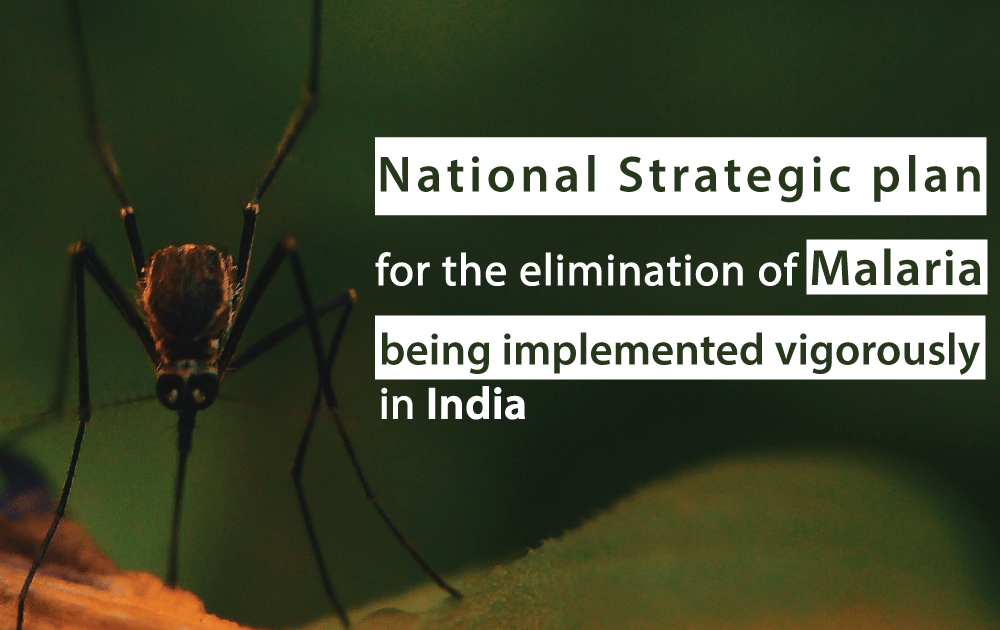National Strategic plan for the elimination of Malaria being implemented vigorously in India
Amid ongoing plans to eliminate malaria, experts have found the incidence of malaria in India is 0.66 cases per one thousand population last year.
Official sources say in the year 2017, reported malaria cases have declined by 23% as compared to 2016 in India.
As per the World Malaria Report 2017 of the World Health Organization (WHO), the estimated malaria cases from India are 87% in South East Asia region.
Malaria is mainly concentrated in the states of Chhattisgarh, Jharkhand, Meghalaya, Mizoram, Orissa, and Tripura because of the inaccessible terrain – many areas get cut off post-monsoon, the presence of efficient vectors – mosquito that transmits malaria and difficult terrain because of which malaria continues to be high in many pockets.
Global Technical Strategy (2016-30) announced by WHO and adopted by World Health Assembly in May 2015 calls for malaria elimination by 2030.
According to the Minister of State (Health and Family Welfare) Ashwini Kumar, the Government has unveiled a plan to eliminate Malaria by 2030. The National Framework for Malaria Elimination (NFME) 2016-2030 document launched on 11th February 2016, lays out the vision, mission, broad principles and practices to achieve the target of malaria elimination by 2030 synchronizing with the Global Technical Strategy (GTS).
The Government has drafted National Strategic Plan for malaria elimination (2017-2020) wherein the country has been stratified based on the malaria burden into four categories – category 0 to category 3 and based on this the intervention of malaria control and prevention are being strengthened.
Interventions that are being strengthened are Early diagnosis and complete treatment; Case-based surveillance and rapid response; Integrated vector management; Indoor residual spray (IRS); Long-lasting insecticidal nets (LLINs)/ Insecticide-treated nets (ITNs); Larval source management (LSM); Epidemic preparedness and early response; Monitoring & Evaluation; Advocacy, coordination and partnerships; Behavior change communication (BCC) and Community mobilization and programme planning & management.


Great article. Your write up is complete and a must know. I am considering getting this treatment (with gender selection). I will definitely reread this and share this to my friends
Thank you for your appreciation and keep reading http://www.innohealthmagazine.com
Malaria and dengue are the most dangerous diseases which gives the worst cases. Fixing a mosquito net will help out to avoid from mosquito bites.
People do all sorts of things to keep them safe from mosquitoes but never would want to install window net for mosquito due to the cost. The diseases mentioned in the post are very dangerous for humans.
Hello,
Thanks for sharing article with us..